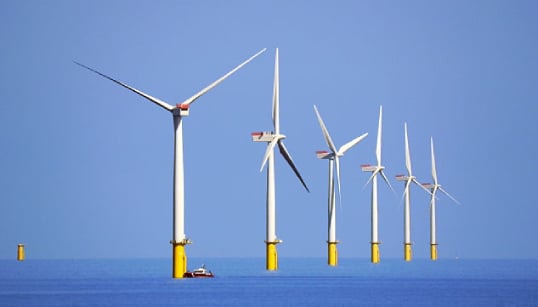
The United States government is acting to ensure that the country’s workers are not unfairly disadvantaged when seeking work in the growing offshore wind sector, and to limit the sector’s use of vessels flying flags of convenience.
The US House of Representatives has passed defence authorisations legislation for the 2023 fiscal year, which includes a number of provisions that affect the maritime industry. The legislation requires that all vessels engaged in offshore wind energy operations be crewed by U.S.-citizen seafarers or by mariners who are citizens of the country of the vessel's flag.
This provision is intended to help ensure that US mariners benefit from the development of offshore wind energy operations and would preclude companies from engaging in flag of convenience operations on the U.S. Outer Continental Shelf.
This bipartisan provision, initiated by Congressmen Garret Graves (R-La.) and John Garamendi (D-Calif.), is now pending in the Senate.
Lars Turner, vice president at Nautilus Federation affiliated union the International Organization of Masters, Mates & Pilots (MM&P), said: ‘MM&P does not support FOC ships working in the US wind industry. We support our American mariners; we want US mariners to benefit from the development of offshore wind operations on the US continental shelf. We want all mariners to have safe working conditions and fair compensation.’
Erick Siahaan, MEBA director of government affairs said: ‘We hope this legislation will bring wind companies to the table with us.’
The defence authorisations legislation also contains provisions sponsored by Congressman Peter DeFazio (D-Ore.) and supported by MM&P and the other maritime unions to address the issue of sexual harassment and sexual assault aboard vessels.
DeFazio has described the provisions, which are also now pending action in the Senate, as necessary steps toward ‘eliminating sexual violence in the maritime industry and better protecting survivors.’
Tags
More articles
UK Hydrographic Office to stop paper chart production
The UK Hydrographic Office (UKHO) has announced that it will no longer be producing paper versions of its charts, and instead will be focusing on digital charts.
MAIB issues safety flyer to fishing industry after man overboard investigation
A safety flyer has been issued to the UK fishing industry highlighting lessons learned from a UK Marine Accident Investigation Branch (MAIB) investigation of a fatal man overboard.
Raise the Red Ensign and lower 'sea blindness' for Merchant Navy Day 2022
Nautilus members who want to help reduce 'sea blindness' among the public are encouraged to get involved by supporting the longstanding Fly the Red Ensign campaign, held annually on Merchant Navy Day.
